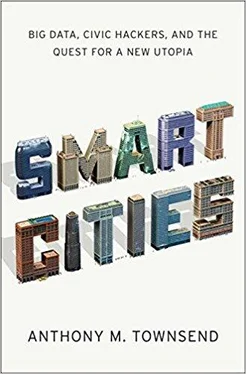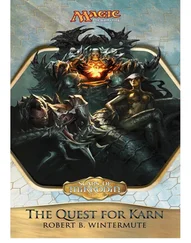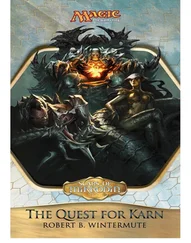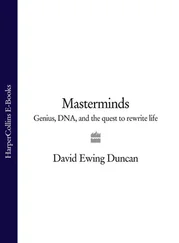Apps contests also highlight the gap between haves and have-nots in smart cities. In 2010, less than two years after Apps for Democracy launched, Washington’s new chief technology officer Bryan Sivak scrapped the contest. His glum assessment: “If you look at the applications developed in both of the contests we ran, and actually in many of the contests being run in other states and localities, you get a lot of applications that are designed for smartphones ... devices that aren’t necessarily used by the large populations that might need to interact with these services on a regular basis.”19 The Hill , a popular DC political blog, scornfully reported, “The contest is just the latest of Kundra’s efforts as D.C. CTO to come under greater scrutiny since his departure ... none of his projects seem to have made a lasting impact on the 90 District’s government.”
It wasn’t just the focus on smartphones that left regular people out, however. Without a formal process to connect programmers to a representative group of citizens, unsurprisingly the contests tended to produce apps that solved the problems of a connected elite. Moreover, the crucial challenge of rendering and promoting successful apps in multiple languages and ethnic communities has been utterly neglected in apps contests.
The one clear sweet spot for city apps has been public transit. All transit operators face the thorny problem of communicating schedules, delays, and arrival information to millions of riders. Apps provide a quick, cheap, flexible, intuitive, and convenient way to push both schedules and real-time updates to anyone with a smartphone. As of early 2012, over two hundred transit agencies in North America were publishing some form of schedule information using a machine-readable format called General Transit Feed Specification, developed in 2005 by Google engineer Chris Harrelson and Bibiana McHugh, a technology manager at Portland, Oregon’s Tri-Met transit authority.
Unlike most contest-generated apps, transit apps have a huge preexisting market, making it possible to build viable businesses that leverage open government data. Francisca Rojas is a researcher at Harvard University’s Kennedy School of Government who has studied the impacts of open transit data. As she explained it to me, “The difference with transit data is that developers are maintaining and improving the apps rather than abandoning them. Users are willing to pay for transit apps and continually suggest new features to developers to make them better, and transit agencies keep releasing new and improved data sets.”
Investing in transit apps is also good public policy. They’re highly inclusive and the benefits accrue to the working poor who depend on public transportation the most. For a working mom struggling to balance childcare and a long commute, knowing the arrival time of the next bus is a huge help. And as apps make transit easier to use, they might help tempt drivers out of their cars and onto buses and trains, where they can be distracted by their online lives more safely and productively even as they cut their carbon emissions.
Cities are also moving to create apps to address specific problems. For instance, the hilly city of Bristol, England, commissioned Hills Are Evil!, an app that “provides people with restricted mobility, cyclists, skateboarders, the elderly, and people pushing pushchairs, the ability to identify the most appropriate route between two places.” As a result of its experience with apps contests, in 2011 New York City’s internal technology department began to explore reforming how it competitively bids small software projects to allow it to more rapidly source apps from small businesses and individuals. Ultimately, apps contests are having a positive long-term economic impact, regardless of whether they deliver useful technology They have catalyzed a community of technologists inside and outside government who are committed to improving the lives of residents and visitors. Instead of working at cross-purposes, or viewing each other with distrust, hackers and clued-in bureaucrats are learning how to work together to prototype new approaches to old urban problems and explore strange and exciting new possibilities.
Data Junkies
Mayor Rudolph “Rudy” Giuliani tamed New York City, a metropolis once thought all but ungovernable, through the blunt force of law. His successor, Michael Bloomberg, whose business empire was built on the delivery of financial data to traders around the world, was a technocrat who rules through scientific management. “If you can’t measure it, you can’t manage it,” he was known to say.
In the spring of 2010, soon after beginning his third term in office, Bloomberg enlisted the help of Stephen Goldsmith to ensure this bean-counting legacy. The former mayor of Indianapolis, Goldsmith took over as deputy mayor for operations, a position with broad authority over the city’s police, fire, sanitation, and buildings departments. He arrived with a reputation for privatizing public services and busting municipal unions. In Indianapolis during the 1990s he had reduced the city’s payroll by nearly a quarter by letting private companies compete against city departments for dozens of services such as repairing potholes and washing fire engines. John Hickenlooper, the two-term mayor of Denver, Colorado (2003-11), put it best when he said, “The most important thing a mayor does is hire talented people to run the city.” Goldsmith was a hired gun brought in by Bloomberg to simplify and streamline government.
In June, just two months after Goldsmith arrived in New York, I listened as he laid out his vision in a brainstorming session with local techies and e-government wonks held at the Harlem headquarters of Living Cities, a club of foundations active in urban issues. In Goldsmith’s view, a century’s accretion of rigid procedures, inflexible work rules, and mindless checklists were preventing city workers from developing critical thinking skills and the ability to make decisions in the field in response to citizens’ needs. Taking the city’s Department of Buildings as an example, he explained how data mining could empower them to think on their feet, and react rapidly to changing uncertainties instead of mindlessly ticking off boxes on a checklist. Starting with an analysis of risk factors, a piece of software could prioritize each day’s inspections instead of just working through a sequential list of addresses on some rigid calendar. Then, during the actual inspection, another analysis would point out the most likely trouble spots that needed scrutiny by the inspector’s expert eye. Goldsmith wanted to turn city workers from automatons into knowledge workers.
The stated goal of this approach was an increase in productivity and effectiveness. But as with his privatization efforts in Indianapolis, it was also a Trojan horse for an assault on the city’s powerful labor unions. Fully implemented, Goldsmith’s reforms would make redundant an entire swath of middle managers, the supervisors and dispatchers who jockeyed line workers through their daily procedural paces.
This Hoosier was in for a New York City street fight. A few months later Goldsmith announced a streamlining plan for the Department of Sanitation, cutting four hundred jobs through attrition and demoting a hundred supervisors back to the line. The timing could not have been worse. Over Christmas, a blizzard struck New York City. Goldsmith was out of town and waffled on declaring a snow emergency. Although accusations of wildcat strikes and work slowdowns by sanitation workers who manned the plows were never substantiated, parts of Queens remained unplowed for days. It was a stunning replay of the infamously botched cleanup after the 1969 blizzard, an event many chalked up as union retaliation for Mayor John Lindsay’s rough tactics during an earlier strike. Goldsmith never recovered politically from the debacle, and resigned the next summer after just fourteen months in office.
Читать дальше












